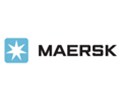

Today, Maersk’s first dedicated block train from Vietnam to Europe just left Hanoi station. The twenty-three 40-foot containers are on its way to Zhengzhou, China, and from there go to Liège, Belgium directly. The train is carrying the latest products for Decathlon, one of the world’s largest sporting goods retailers, and all cargoes will be transported by trucks to their final destination in Dourges and Rouvignies, France by the end of August.
The COVID-19 pandemic has caused unprecedented disruptions to many industries and global supply chain. However, for the sportswear industry, it is thriving as consumers continue to spend time exercising, as outdoor individual sports and home workouts both see increased participation. Massive orders are piling up at Vietnam’s manufacturers, leading to lack of space to store products.
Maersk teams in Vietnam, China and Europe collaborate to guarantee the smooth transition and service delivery.
“There is a container shortage, limited space in the warehouse, and ocean capacity constraints on the services network. In our constant effort to cater for Decathlon’ specific needs, we are integrating various transport modes to provide agility and flexibility as well as reliability to transport their products. We are currently working on arranging three more block trains to Europe in the following quarter,” explains Rossie Hong Nguyen, Lifestyle and Retail Client Manager, Vietnam, Cambodia and Myanmar Area at Maersk.
Despite the severe flooding overwhelmed the city of Zhengzhou last week, which had impact on business activities, the rail services had resumed. Zhengzhou is the junction for the major north-south and east-west rail lines, with connections to most major cities in both domestic and overseas from one of Asia’s largest stations.
Maersk’s dedicated block train service for Decathlon can be traced back to 2017, first departure from China. Since then, the company continues scaling up the intercontinental rail service to meet the growing demand of all customers. In fact, our train services between Asia and Europe serve 30 different countries across multiple routes both east and west bound.
Source: A.P. Moller Maersk